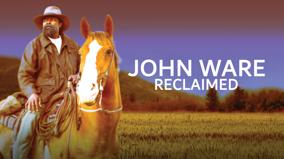New release
Coming
None
COVID 19: The Future of Food
2020
12 min
Leaving soon
How are you adapting to the pandemic? That’s the question Jérémie Battaglia and Vali Fugulin asked Canadian small and medium-sized business owners in April 2020 as part of the Pivot project led in partnership with the McGill Sustainability Systems Initiative. Out of these discussions, one major theme emerged — how COVID-19 has affected the eating habits of Canadians. Interest in local products and cooking exploded during the lockdown, but was it just a fad? Six months later, as the second wave was sweeping over the country, Jérémie wanted to continue the conversation with two of the business owners he met, …

-
 The Curve2020 7 editions
The Curve2020 7 editions
Details
How are you adapting to the pandemic? That’s the question Jérémie Battaglia and Vali Fugulin asked Canadian small and medium-sized business owners in April 2020 as part of the Pivot project led in partnership with the McGill Sustainability Systems Initiative. Out of these discussions, one major theme emerged — how COVID-19 has affected the eating habits of Canadians. Interest in local products and cooking exploded during the lockdown, but was it just a fad? Six months later, as the second wave was sweeping over the country, Jérémie wanted to continue the conversation with two of the business owners he met, restaurant owner Lil MacPherson and farmer Dave Kranenburg. Both have long advocated for the importance of making the agri-food industry more responsive and local. On a video-conference call, they reflect on the changes in behaviour we’re seeing and wonder if we might be witnessing a long-term paradigm shift in our relationship with food.
-
writingJérémie Battaglia
-
directionJérémie Battaglia
-
editingJérémie Battaglia
-
participationDave KranenburgLil MacPhersonVali FugulinMatthieu BonneauYasmen De LeonNatasha KapoorNiki KapoorTabitha LangelSuzanne SiemensTomas SohlbergDan Wells
-
re-recordingLuc Léger
-
online editorDenis Pilon
-
visual identityLe Séisme
-
translationSette
-
subtitlingSette
-
executive producerLouis-Richard Tremblay
-
producerLouis-Richard Tremblay
-
head of production and studioLaurence Dolbec
-
senior production coordinatorVéronique TessierIsabelle Limoges
-
technical coordinatorMira Mailhot
-
administratorMarie-Andrée Bonneau
-
production coordinatorIsabelle GattiJulia Dawson

















